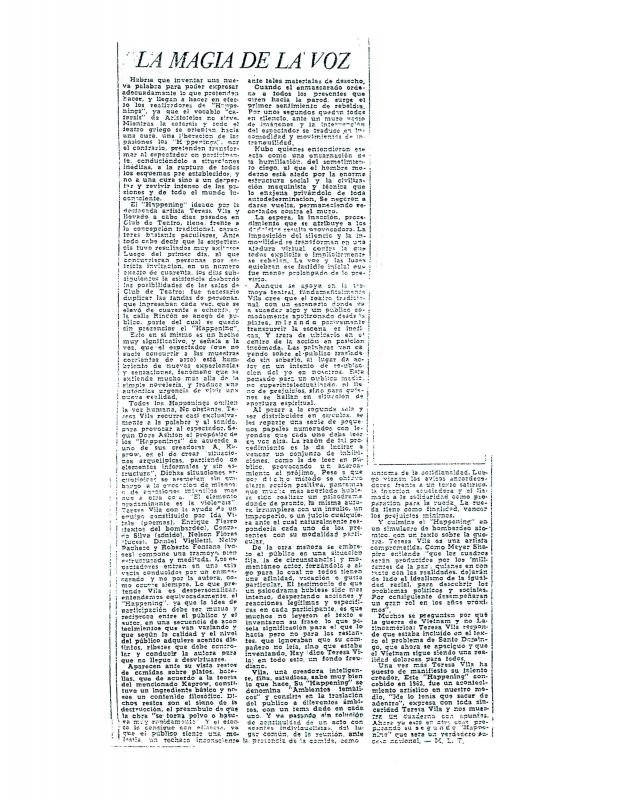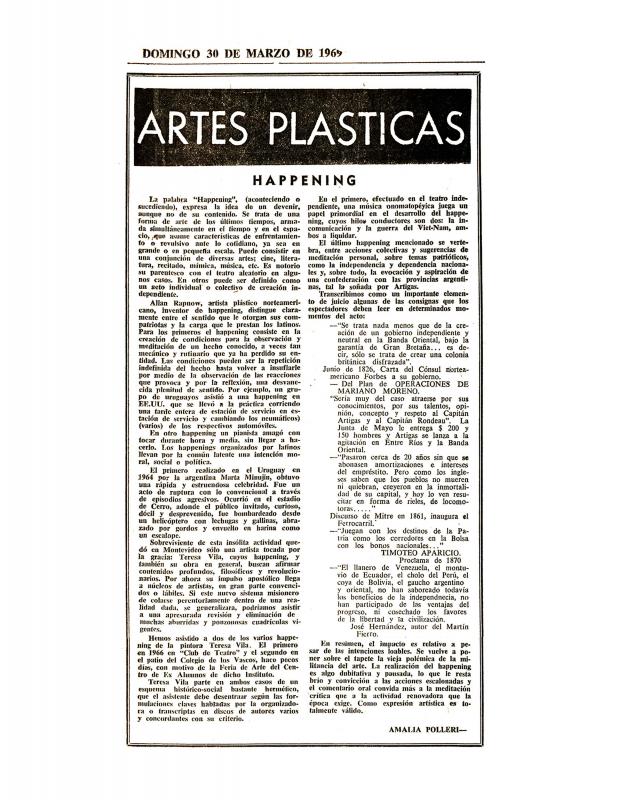In the Uruguayan artistic panorama of the sixties, there were important sociopolitical events, accompanied by particular artistic phenomena, which ran parallel to the context of generalized violence at the national level under the military dictatorship, as well as noted new and emerging complexities in the cultural field. The artistic movements adopted new collective commitments notably concerned with the “message” of the work and exploring forms of language that would integrate written text.
Teresa Vila (1931−2009), considered one of the pioneers of performance in Uruguay, carried out “thematic actions.” This is a theatrical experience that balanced provocation, participation, and improvisation, trying to create disruptive situations conducive to questions about the unsettling local and global situation. They are moments that construct new political subjectivities (“Something personal is something political”). Vila merged visual language with sounds, scripts, and performances, in order to generate multiple types of visceral and conceptual experiences in the spectators, inciting them to actively reflect on the situation.
[As complementary reading, please refer to the ICAA digital archive for the following texts: “La magia de la voz,” by María Luisa Torrens (doc. no. 1250311); and “Happening,” by Amalia Polleri (doc. no. 1250362)].


